








Kupu Arataki – Introduction... pg 3-6

› Quiz – Wild nature facts... pg 7
Ā mātou korero – Our stories
› There’s lots to be proud of this International Women’s Day... pg 8–9
› Volunteers update waiting area... pg 10
› Fun, pain and rain on transalpine event... pg 11

› One minute with… Philippa O’Neill, Operations and Administration Services Manager, Rural Health Services, Waitaha Canterbury... pg 12–13

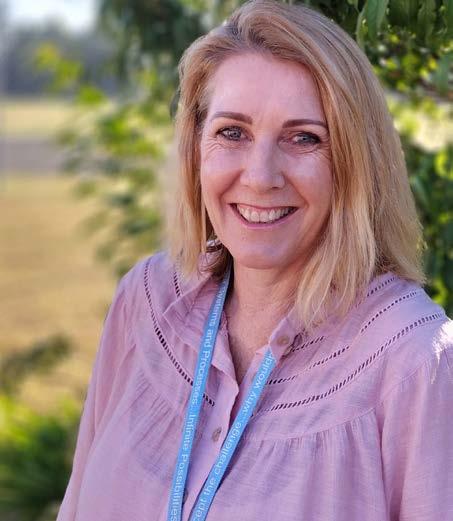
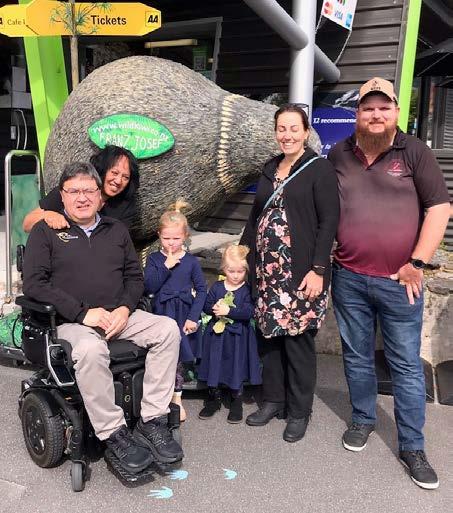
› Akoranga reo Māori – lesson #4 Reo o te whānau – Language of the family... pg 14
› Whakamihi – Bouquets... pg 15–16
Ā mātou korero – Our stories
› World Delirium Awareness Day... pg 17

› Creating accessible documents and information... pg 18
› Kiwis aged over 40 urged to get their eyes tested this Glaucoma Awareness Month... pg 19
› Spotlight on wheelchair use... pg 20
Pānui – Notices ...pg 21–27
As we enter a period known for wildly fluctuating temperatures - high 20s one day then cold and raining the next – it is a good time to prepare for the winter season.
We shouldn’t forget 2022, which was particularly nasty with Omicron, then the flu, tearing through our communities, schools, businesses and of course, our health facilities. This year, we have also seen our first case of measles in New Zealand since 2019.
The 2023 flu vaccination will become available early next month, and all Te Whatu Ora employees are eligible to receive it for free. Keep an eye on the daily email and future pānui for information about the flu vaccination clinics.

The new COVID-19 BA.4/5 bivalent vaccine is now available to eligible New Zealanders. Anyone due for a first or second booster can get it now.
Effective 1 April, the additional booster will be available to:
› anyone aged 30 and over who has completed a primary course, as long as it’s been at least six months since their last COVID-19 booster or positive COVID-19 test
› anyone at increased risk of severe illness from COVID-19 who has completed a primary course, as long as it’s been at least six months since their last COVID-19 booster or positive COVID-19 test.
Book in to get your bivalent COVID-19 booster by visiting Book my Vaccine or calling the COVID-19 Vaccination Healthline on 0800 28 29 26 (8am to 8pm, 7 days a week).
The measles, mumps and rubella (MMR) vaccination is free for people up to age 32 or anyone born after 1968 who hasn’t received two doses. Measles is highly contagious and very dangerous, particularly for children under the age of five and adults older than 20.
The first dose of MMR vaccine is due at 12 months of age. A high number of New Zealanders between the age of 17 and 32 have not completed two doses of the MMR vaccine.
Speak to your general practice team to ensure you and your whānau are up-to-date with your MMR vaccinations.

Hundreds of Te Whatu Ora and Te Akai Whai Ora staff have put their hands up to volunteer in the areas impacted by Cyclone Gabrielle. Currently, 82 people are deployed to provide roster and incident management cover, and they join representatives from NGOs and community providers who are also on the ground. More people are expected to be deployed in the coming days. This support is invaluable to the people and communities still struggling.
Effective 1 May, Leigh Donoghue will join Te Whatu Ora as Chief Data and Digital Officer.
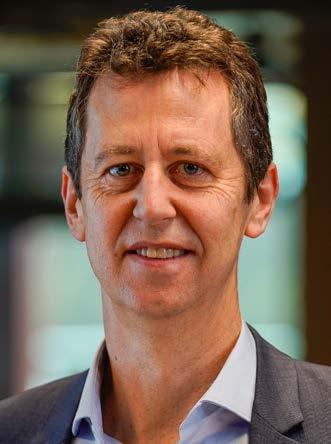

Leigh will lead the implementation of digital and technology innovations that improve access to care, enhance our people’s experience of work and support our strategic aims and key system shifts. He will work in close partnership with Te Aka Whai Ora – Māori Health Authority to ensure that the principles of Te Tiriti and Māori data sovereignty are put into practice and opportunities for equity through digital means are enabled. As well as work with Primary Care and NGO sectors to drive a culture of transparent, usable data sharing to drive health innovation using insights from across the sector.
Leigh joins us from Accenture, a global professional services company, where he was the Health Industry Lead for ANZ and the wider Asia-Pacific region. He has lived and worked in multiple countries including USA, UK and Australia, and has significant experience in leading complex, multi-year change across diverse teams and delivery challenges.
Kaimahi in our Northern Region have formed a regional community of practice group to discuss best practice in the development of electronic documentation using Care Pathways within the regional Clinical Portal. Clinical Portal is the Northern Region's electronic patient dashboard to view health information. It includes medical alerts, radiology and laboratory results, clinical history and patient movements from a variety of clinical applications.
This initiative has great potential to streamline processes and reduce duplication of development effort. The group of more than 20 colleagues have connected to work together on replacement of forms in the outdated application SMT (Soprano Medical Templates) and share learnings in the development of new forms. Increasing capability across the region and enabling the knowledge transfer to a number of kaimahi ensures that the region is well positioned to support the ongoing development and use of these forms into the future.
Training emphasised a regional-first approach encouraging the team to consider if there is already a form existing in the region, or if the form would be useful to other districts during development. This in turn will reduce duplication of clinical forms in the Clinical Portal.
The invite to join the network is open to any other region using Clinical Portal. The more minds, the merrier.
Contact Aaron van der Klip to join or share clinical forms.
Tomorrow is Census Day in Aotearoa New Zealand. Census is a survey carried out every five years to provide an official count of people and dwellings, and it helps us better understand who we all are and what our communities will need into the future. It is important to be counted, because we all count.
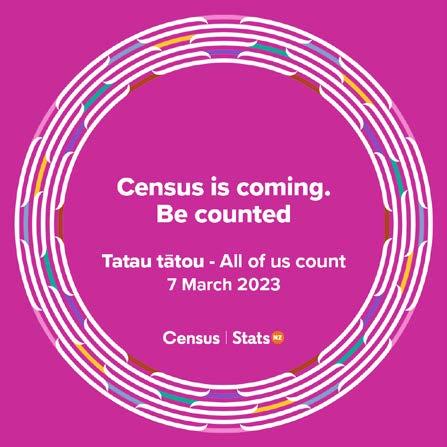
Anyone residing in one of our health facilities on Tuesday night will have the opportunity to participate in the census. This includes inpatients, consumers and any caregivers or whānau who are sleeping over with them that night.
Information and census forms will be provided to people in our care and their relevant parents, whānau or caregivers on Tuesday. An FAQ is available for staff working in our health facilities on Tuesday. You can read it on PRISM although please note, each campus may be doing things a little differently.
Information and guidance to support health practitioners in the provision of oral therapeutics to treat COVID-19 has been revised.
The evidence around the effectiveness of these medicines is continuously being reviewed and as we learn more, we need to change our approach.
Accumulating evidence currently suggests Molnupiravir treatment is unlikely to be of benefit in the treatment of COVID-19 and is no longer recommended by the Ministry of Health COVID-19 Therapeutics Technical Advisory Group (TAG).
Paxlovid continues to be the first-line antiviral for the treatment of COVID-19 as supported by the current clinical guidance from the Ministry of Health COVID-19 Therapeutics TAG.
The revised Oral therapeutics for the treatment of COVID-19 guidance can be found with this link: COVID-19: Advice for all health professionals – Te Whatu Ora - Health New Zealand
The Māia Foundation is working to raise the remaining funds for Kahurangi – a purpose designed facility for young people to receive mental health outpatient treatment on the Hillmorton campus.
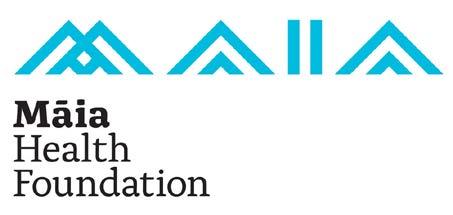
A fundraising party is being held to support this wonderful cause and you can purchase tickets to attend now. The ticket price includes drinks and canapés, as well as a few surprises.
When: 7 – 11pm, Friday 28 April

Where: The Great Hall, The Arts Centre
How: Book your tickets here Questions: Email Talei

International Women's Day is a global day celebrating the social, economic, cultural, and political achievements of women. The day also marks a call to action for accelerating women's equality.
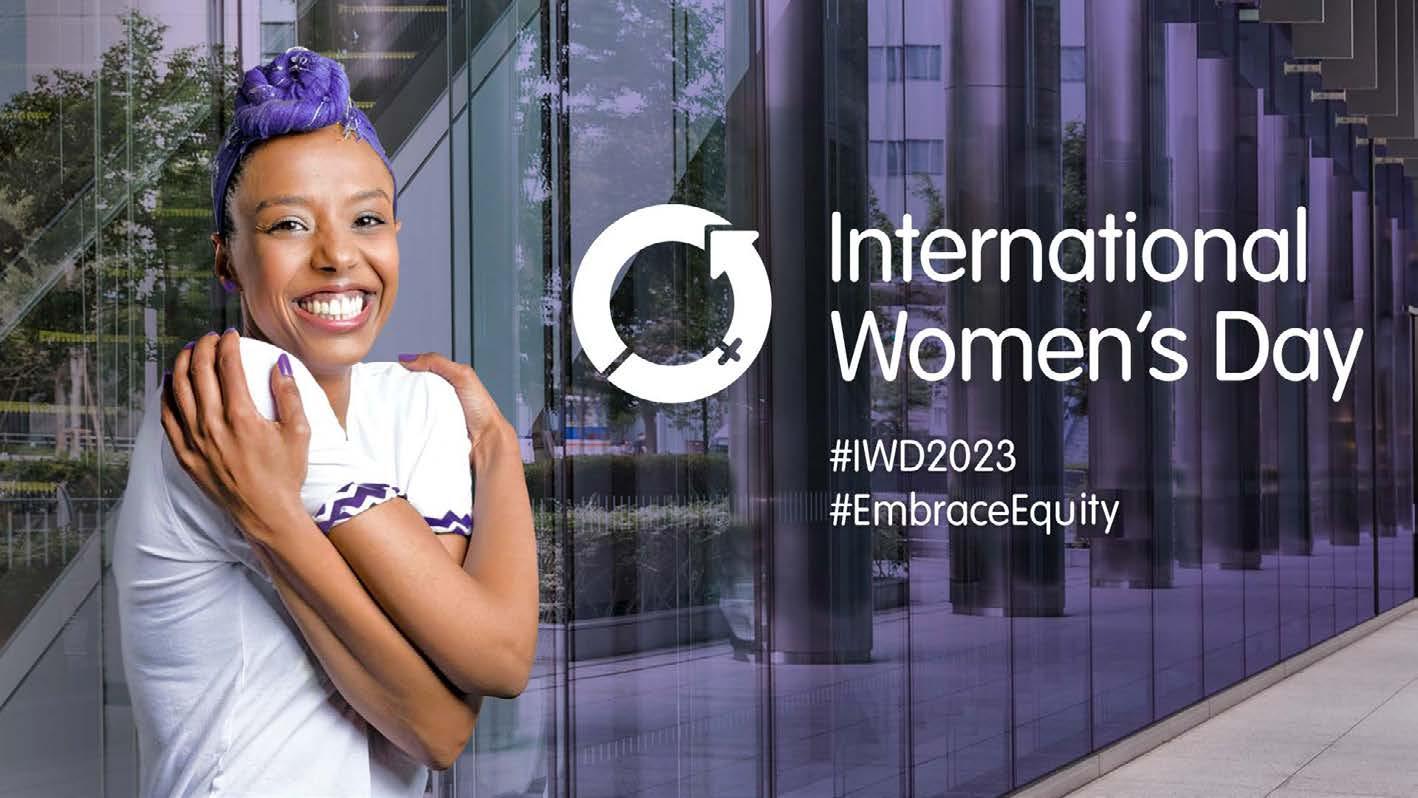
The theme for 2023 is #EmbraceEquity
Interim Chief People Officer Jo Domigan and Executive Director of Nursing Becky Hickmott join us on page 8 to talk about International Women’s Day and what it means for the health system.
Equality means each individual or group of people is given the same resources or opportunities.
Equity recognises that each person has different circumstances, and allocates the exact resources and opportunities needed to reach an equal outcome.
How much do you know about the world around us? Test your knowledge with these truly wild true or false nature questions.
1. There are more trees on earth than stars in the Milky Way.
a. True
b. False
2. Cold weather kills more people than hot weather each year.
a. True
b. False
3. Cockroaches are the only animals that could survive a nuclear blast.
a. True
b. False
4. Humans eat about 75 percent of the edible plants on earth.
a. True
b. False
5. Polar bears are black.
a. True
b. False
6. Humans weigh more than ants.
a. True
b. False
7. More people are killed by domestic pets than any other animal.
a. True
b. False
8. A giant penguin standing 2m tall from toe to beak tip and weighing around 115kg once existed.
a. True
b. False
9. Rats can’t burp or vomit.
a. True
b. False
10. If the earth’s rotation slowed, we would all weigh less.
a. True
b. False

Check your answers on page 22
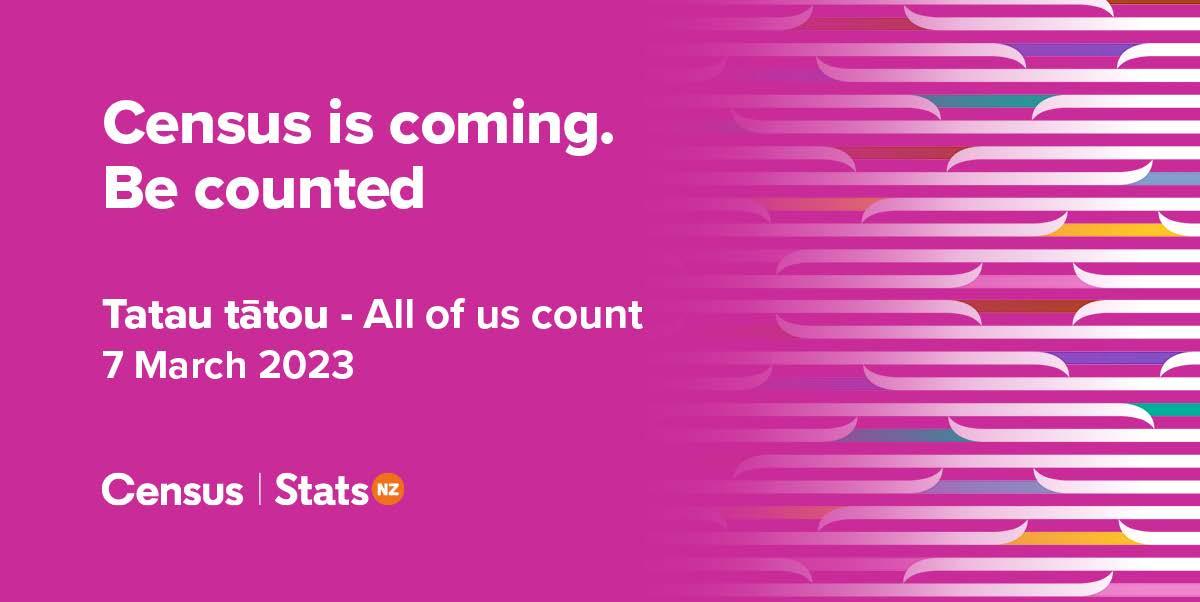
International Women’s Day (IWD) has been celebrated for more than 100 years and was actually spurred on by the universal female suffrage movement that began here in New Zealand. Celebrating the social, economic, cultural and political achievements of women, IWD also draws attention to issues such as gender equality, reproductive rights and genderbased violence.
The theme of the 2023 IWD is #EmbraceEquity The aim of the theme is to get the world talking about why equal opportunities aren't enough. People start from different places, so true inclusion and belonging require equitable action.
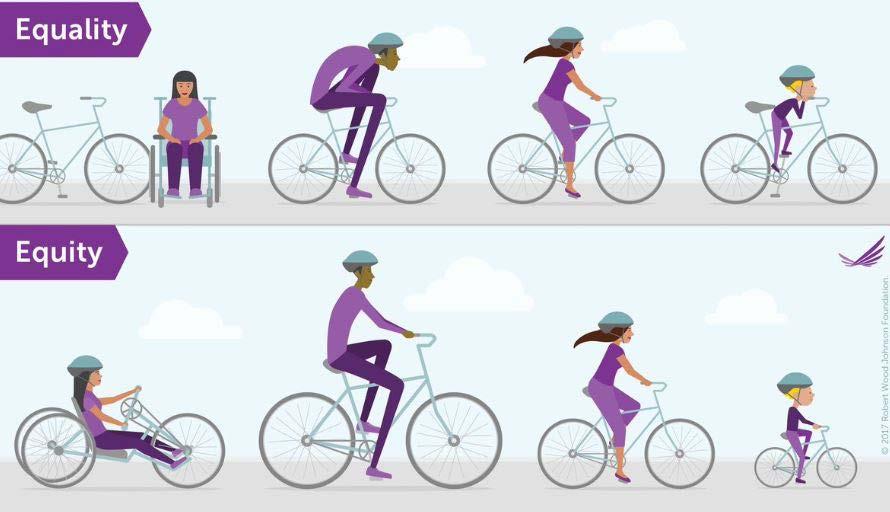
Equity isn't just a nice-to-have, it's a must-have.
Interim Chief People Officer Jo Domigan says that while women
are well represented at all levels in Te Whatu Ora, there is a strong focus on improving equity.
“There is an intentional effort to make our workforce a better representation of the communities we serve, and that requires increased support and opportunities for wāhine Māori, Pacific women, single and working mums”, she says.

Pay equity for traditionally female-dominated roles is another relevant issue this International Women’s Day. In December 2022 Te Whatu Ora applied to the Employment Relations Authority (ERA) to request pay equity for nurses. It was a hard-fought battle to see women and people in nursing, valued for the work they do.
Jo says that female representation is strong in healthcare.
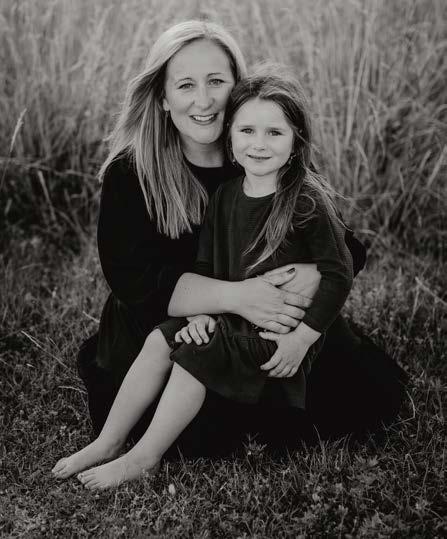
and equity?
Equality means each individual or group of people is given the same resources or opportunities.
Equity recognises that each person has different circumstances, and allocates the exact resources and opportunities needed to reach an equal outcome.“This is me and my only daughter Pearl Jacquelyn - named after my late mum Jacquelyn (Jac) Stephens. Mum was in the army, then a volunteer firefighter and ambulance officer, a mum to four kids and a very staunch role model for equality - just as I am hoping to be for Pearl,” – Interim Chief People Officer Jo Domigan
“When I attend HR leadership conferences and forums, I get to meet peers from a range of organisations. Conversation frequently turns to issues of gender and people talk about a lack of women in leadership and board positions. It makes me proud to work in health with so many women in a wide range of senior leadership roles.”
Executive Director of Nursing Becky Hickmott agrees.
“I’m in awe of the amazing women I get to work with every day. At all levels of Te Whatu Ora we have extraordinary women performing complex clinical functions, leading teams, undertaking ground breaking research and working tirelessly to provide the best possible healthcare to our communities. They’re balancing multiple responsibilities to ensure all the functions of our facilities and organisation run smoothly.”
The fact that our Minister of Health, the Director-General of Health and Chief Executive of the Ministry of Health, and Chief Executives of Te Whatu Ora and Te Akai Whai Ora are all women is also significant.

“New Zealand has a strong history of female leadership. From Kate Sheppard and being the first country to give women the vote, to the fact that there have been three female prime ministers and four female governor generals. This representation is so important”, says Becky.
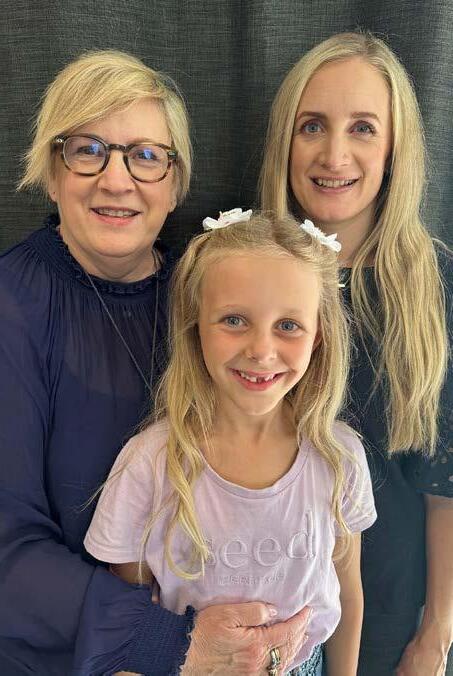
“The women in our workforce lead from the front and do so much for our communities. It’s an honour to serve alongside them.”
Tell us about a woman you admire, and you could win one of two double passes to see That Bloody Woman, a musical theatre experience celebrating the life of Kate Sheppard. Showbiz Christchurch is presenting That Bloody Woman at Christ’s College Auditorium between 5 and 15 July 2023.
To win a double pass (performance date to be confirmed), please click HERE and tell us about a woman you admire. Entries must be in by 5pm Friday 10 March with the winners announced in next week’s pānui.
The waiting room in the Echocardiography (Echo) Department is looking brighter thanks to the Christchurch Hospital Volunteers.
They have generously donated four new chairs, replacing old outdated scuffed ones, and added new artwork to the area.
“We are so delighted that we were able to help out. I’m sure whoever goes there will like the new blue chairs, along with the matching ottoman and new modern side table that they can now use while waiting,” says Volunteers Coordinator Louise Hoban-Watson.
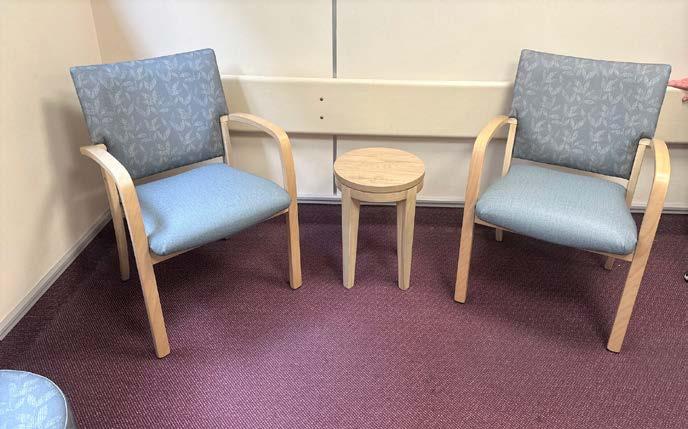
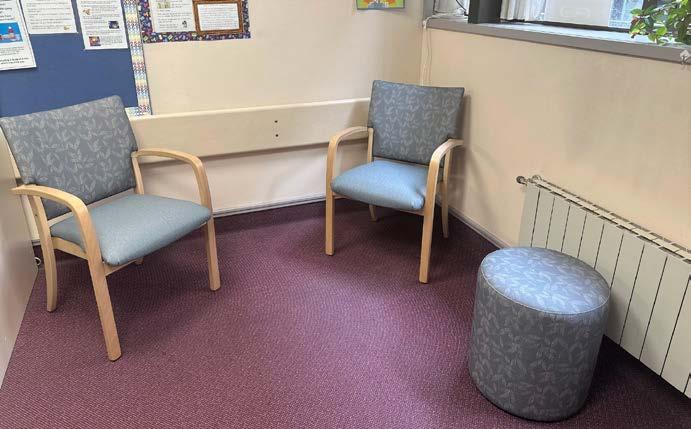

The donation was made possible from the profits from the hospital’s gift shop Thanks all for your support.

Wet weather prevented participants in the latest Fossil Fuel Free Coast to Coast to Coast(F3C3) event fully achieving their goals, but the hardy adventurers are already thinking about their next trip.
Medical Physicist Steven Muir, Health Promoter Meg Christie, Radiographer Gareth Vile and others took part in the fifth F3C3. Created by Steve, its aims are to have a fun holiday, raise awareness of climate change and encourage the use of active, fossil fuel free transport.
“The short story is that fortunately we weren’t another statistic of the terrible alpine weather that took out some of the ultra-marathoners competing in the Southern Lakes Ultra Marathon, but also that we were not able to be fully fossil fuel free this time,” says Meg.
Leaving their kayaks at Bealey Spur, Te Whata Ora’s Steve, Meg and Gareth walked the 25km route over the Minga and Deception rivers while their fellow participants, Sam Beaumont and Alistair Brown, rode up and over Arthur’s Pass to Sam’s family bach at Otira.
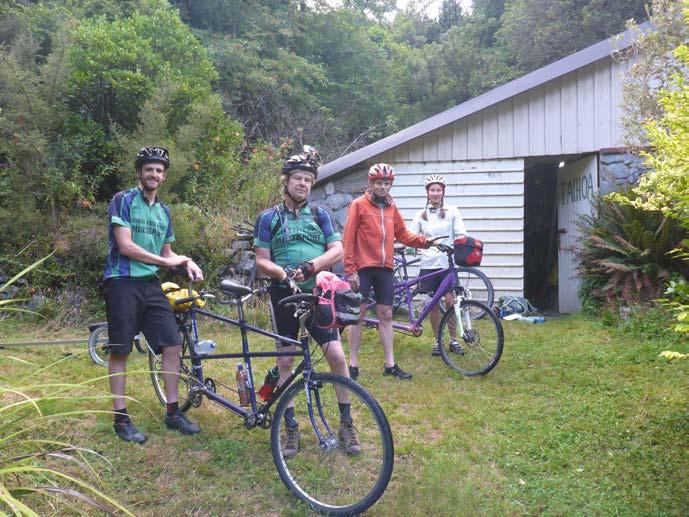
“There was a decent drop of rain for the trampers going over Goat Pass, but it fined up again once down in the Deception Valley,” says Steve.
Steve’s knee got sore towards the end of the tramp which was not a problem until they got on the bikes which Sam and Alastair had dropped at the road end of the bridge.
“Meg and Gareth jumped on the tandem bike and sped off with great enthusiasm to dinner waiting 6km back up the road, leaving me to discover that biking was much more painful than walking. Doing a combo of walking and biking one legged, I pulled into the bach just as Gareth was setting back off down the road with a tandem to see what was taking so long,” he says.
On Day four Steve had a rest day at Otira to allow his knee to recover while the others rode two tandems to Kumara Beach and back in great conditions, stopping to pick four litres of wild blackberries which they made into a crumble dessert. Fortified by the blackberry crumble, Sam and Alastair walked back over the Deception-Minga Route while Steve, Gareth and Meg biked/pushed the bikes up the Otira Viaduct and back to Bealey Spur.
“Overnight the balmy and warm nor’west weather turned to the south with a cool drizzle. It was raining steadily when we approached Mount White. This, coupled with the forecasted four degree wind-chill factor, meant we were likely to suffer some major hypothermia if we carried on, so the disappointing decision was made for Steve, Sam and me to abandon the kayak leg,” says Meg.
Increasingly heavy rain, freezing temperatures, a strong head wind, while hauling heavy kayaks and increasing pain in Steve’s knee, meant that it was not safe to go all the way back to Oxford, especially down the steep and greasy Porters Pass Road.
“With the weather forecast to get even more dire the following day, the difficult (not) decision was made to abandon the fossil fuel free aspect and arrange for a friend to do a pick up at Lake Lyndon, to return the group and all their clobber to Christchurch.
“It was a disappointing finish and voided the goal of not using any fossil fuels, but at least we remain alive to try again another time,” says Meg.

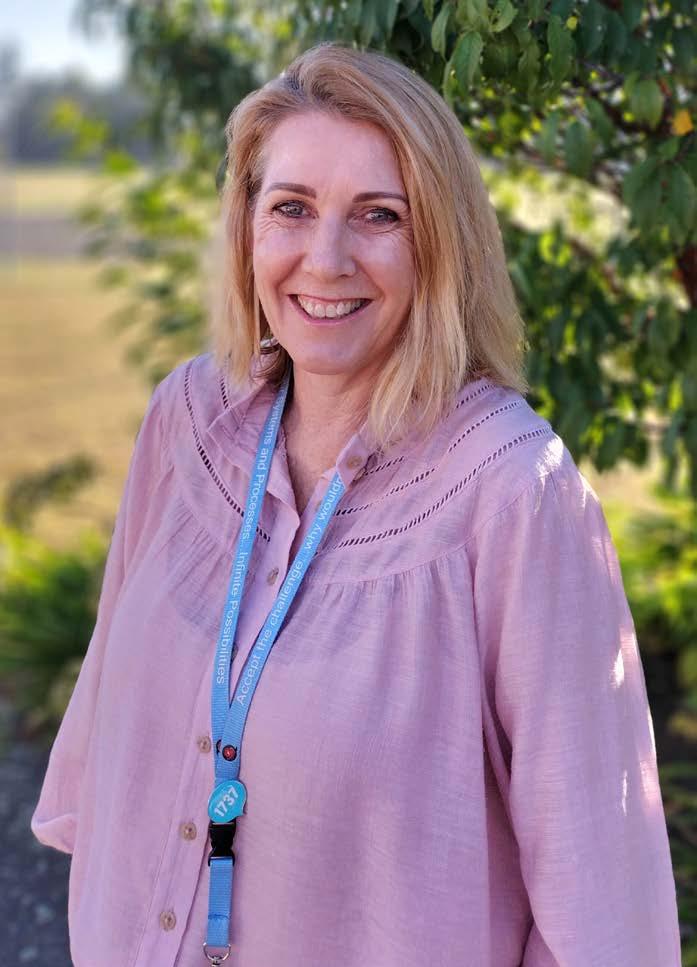
I am responsible for connecting the operations and administration across all our rural campus areas. This is diverse, as we have very different models and campus areas, from comprehensive/integrated primary care services in the Chatham Islands and Kaikōura, to aged residential care services in Waikari, Ellesmere, Darfield and Oxford, acute and inpatient care in Ashburton Hospital, as well as a wide range of community health services including, primary birthing units, Needs Assessment Service Coordination, district nursing and home-based support services.
I lead a team of 26 administrators who provide support and perform all tasks associated with inpatient, planned, community services and Front of House. This includes the ability to book for any visiting specialist service, (currently 15 different services). The team book over 50 clinics a week for these specialty and local services combined. Our administration team members flex to support the spaces where there is the greatest need, we find this supports our model to be responsive and within budget – that keeps everyone happy!
While the administration team are actively working alongside our clinical leaders to support patient flow, I work with the wider components of the business matching Te Whatu Ora direction with local service response. You will often find me in Christchurch working with the Health and Safety leads, Security leads and most recently a focused amount of time with the Emergency Planning leads.

Almost 25 years with the organisation, I started in Radiology reception in Ashburton in a permanent part-time role, back-filling administration support for Radiology Services on the Christchurch campus. This connected me with a wide number of services across Canterbury and with the primary care teams in Ashburton.
The opportunity to join the rural Division came when I was appointed as Ashburton Administration Services Manager in 2017, evolving to the current position covering all of Rural in 2021.
The wide variety of work and responsibility is constantly challenging but it's also great and allows you to connect with lots of different people, both internally and externally, from a wide range of services, which is very rewarding.
Who inspires you and why?
Many people, mostly those who have had significant challenges, whatever that looks like, but get back in the ring to fight another day, and compassionate people who are committed to improving the lives of the most vulnerable in our communities. We see examples of these every day in health.
What do Waitaha Canterbury’s values (Care and respect for others, Integrity in all we do and Responsibility for outcomes) mean to you in your role?
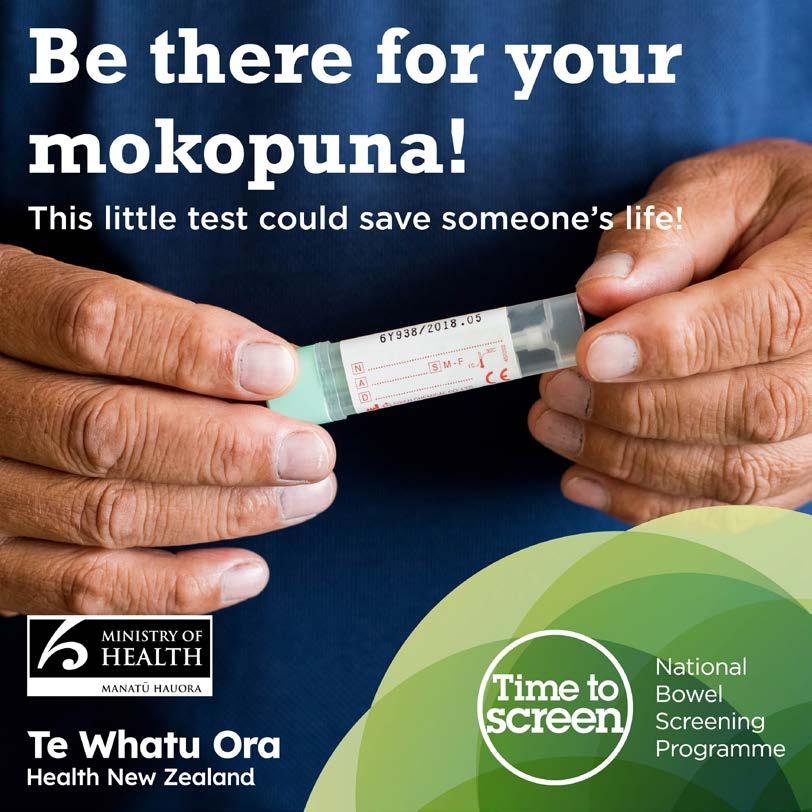
I try really hard to have an open-door policy, particularly for my team, speaking from a manager’s perspective I genuinely care about my people. Looking after our people influences their performance, and that makes the difference for patients and clients.
Understanding and appreciating that we all come to the table with a different perspective, and being respectful of other people’s viewpoint, working together in an honest and transparent manner. I prefer face to face conversations where possible, and aim to keep my own integrity in check, that’s a priority for me.

If you could be anywhere in the world right now where would you be?
Moorea, Tahiti.
Who would you want to play you if there was a movie made about your life?
Sarah Lancashire – she’s fabulous!
What are your hobbies/interests outside of work?
Relaxing at home with family and friends, taking my grandchildren on adventures or just hanging out with them. Also, walks in the bush, time out in Picton, eating out, experiencing cuisine from a variety of cultures, accompanied with a glass of wine. My partner is a keen jetboater and the Rakaia River is on our doorstep. We boat all year round when the sun is out, it’s cold in the winter but so beautiful, and we have created lots of special memories.
E te whānau hauora, tēnā koutou katoa. To the family of health and wellbeing, greetings to you all.

This lesson we are going to look at some of the language used for the whānau or family. From a Māori perspective, whānau is of paramount importance. The concept of whānau is complex and refers to a more extended, communal family group than the nuclear family that many of us may be more familiar with. It is based on whakapapa or geneology. Please note that there are many dialectual differences in terms that are used for the whānau that are not included here. These are just some of the commonly heard terms.
Ngā Whakahau – Giving commands
When dealing with tamariki, we often find ourselves using commands like “go to sleep” or “be quiet”. The following is a couple of useful commands that we can use instead.
Ancestor, grandparent Tipuna/Tupuna
Grandfather Koroua
Grandmother Kuia
Mother Whaea
Father Matua Matua
Parents Mātua
Aunty Whaea kēkē
Uncle Matua kēkē
Father Matua
Mother Whaea
Son, boy, nephew Tama
Daughter Tamāhine
Brother or male cousin of female Tungāne
Sister or female cousin of male Tuahine
Elder sister or cousin of female Tuakana
Elder brother or cousin of male Tuakana
Younger sister or female cousin of female Teina
Younger brother or male cousin of male Teina
Relative Huānga
Son-in-law, daughterin-law Hunaonga
First born, eldest Mātāmua
Youngest child Pōtiki
Mother or father-in-law Hungarei/ hungawai
Brother-in-law of male Taokete
Sister-in-law of female Taokete
Brother-in-law of female Autāne
Sister-in-law of male Auwahine
Children Tamariki
Child Tamaiti
He whakapātaritari – A challenge
Draw up your family tree using some of the terms that you have learnt to describe your whānau. Include your tamariki in the activity.
Tēnā koutou katoa, ā, tukuna ēnei kupu whānau kia rere!
Thank you all and let these family words flow!
If you have any questions or feedback, please make contact via the email below. Hauora. Maori@cdhb.health.nz
Kia ora koutou. Unfortunately for the last two weekends I have had to bring my mother to the ED. I feel it is my duty to acknowledge how professional and caring all the kaimahi working there were. Their respectful manner and attitude made what was a distressing time, that much less stressful. They demonstrated genuine care and compassion that deserves to be acknowledged. Thank you so much for how you treated and cared for us.

I had my gallbladder removed recently and wanted to say a big thank you for how well all the staff handled my case. I had been waiting after a few false starts with COVID-19. Once I was picked up, it was a very efficient booking to discharge path. I’m sorry to say I can’t recall most of the names of the people involved, but they all made me feel very comfortable and well looked after. Thank you all so much.
The most patient, friendly and helpful staff work on this ward and I’m very thankful to everyone here and admire them greatly for the work they do. It’s never easy for people dealing with extreme pain and loneliness during treatment, but I have been made to feel comfortable and safe and cared about as a person while here
Thank you for your care and support. I really needed it. It was comforting to have the reassurance from your staff as to what to expect during my recovery. As a patient, I can tell you that I felt the caring warmth of smile behind each mask. Thank you again.
A small note of gratitude to Andrew Henderson and his colleagues for their kindness and professionalism during my recent stay in Ward B1. Notwithstanding the circumstances surrounding my admittance, I was treated with kindness and compassion from everyone.
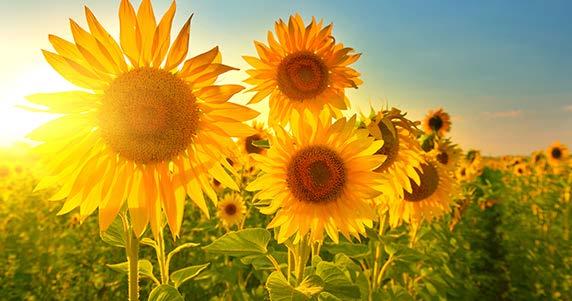
Wayfinding
Such helpful volunteers to greet us at the entrance (arriving by shuttle). What wonderful volunteers! Thank you so much for taking us up to the Nuclear Medicine reception.
I wanted to compliment some of the staff who were exceptional during my stay here, which started from a fall. Nurse Emily White as well as Hannah and Chanel were very attentive and bode well for the future of your nursing staff. Chaplain Donna Reid was a godsend and made my experience wonderful because she helped lift my spirits. The physio team of Emma and Malcolm were essential to my ability to begin walking again. The young doctors, Jordan, Katelyn and Georgia were great.
A big thank you to Nurse Cara and Dr Nathan of Haematology/MDU for their kindness, good humour and understanding. My mum was very worried about her bone marrow biopsy and you made her feel completely at ease and very reassured. We are very lucky to have amazing people like you caring for us! Thank you very much.
Thank you to Haematology Registrar Dr Elizabeth Precious for her kindness and patience in answering our many, many questions. You explained things very clearly and helped us feel very reassured. Thank you very much for your hard work and care.

Thank you to all the hardworking midwives in the Birthing Unit. I recently had an extended and difficult stay. You all do such an amazing job looking after us mums at a huge time in our lives. Thank you for helping us birth our babies with such compassion and kindness for mothers, and fathers as well. All despite being short staffed and run off your feet. Families everywhere appreciate you!
I have just got home after a week in Christchurch Hospital, spending time in ED, SARA, Ward B3 and other imaging areas. I want to let you know that your staff are amazing! I was so impressed with the level of care and the kindness and compassion I was shown during my time there. You should be very proud of your staff for doing such a fabulous job. I particularly want to make mention of Catering Assistant Lorie who delivered many meals to me. What a super star! She was kind, caring and altogether lovely. What an asset to your team.
Thank you so much for the wonderful care of my son. What a group of amazing people you have working here. Special thanks to Lauren, Mason and Kendall for making the whole day much more pleasant and for the outstanding nursing care!
Had a short stay in hospital recently and wish to send my gratitude to all the staff who cared for me in ED and Ward 12, and the orderlies who wheeled me about the place. I was a bit overwhelmed by
what was happening to me and each staff member was kind, courteous and very professional. I was given a lot of medical information about what was going on with my body and also about the medication being given to me. The Cardiology team was kind and gave me information that I could understand. The WellFood and cleaning staff in Ward 12 were very kind as well. I appreciate the care I was given.
I want to praise the MAU staff for the love, care and support to my mum. She was rushed into hospital where she remained until she passed away. My sister was with Mum, but I live in Australia. Luckily the medical team suggested that she get me over as Mum didn’t have long to live. I got on a flight that afternoon and arrived late that night. The care that every single person who had anything to do with Mum was so appreciated. Our mum had dementia and yet the entire team, from Tamara (one of the doctors) right through to every single nurse who dealt with Mom went above and beyond. I have been in hospital several times here in Australia and I would like to say that the care and dedication that your team gave to Mum was way above what I have ever received. Even the love, care and support that both my sister and I received enabled us to give our mum the best care and farewell that we could ever wish for. I would like to mention all the staff; however, the faces are very clear, the names not so much. Please ensure that they are made aware of just how special their care was, not just to Mum, but to my sister and myself. It meant the world to me that a bed was brought into Mum’s room to enable me to stay with her overnight. Whilst I didn’t get much sleep, it was so appreciated that I could actually be with Mum and it’s special memories like this that get me through the loss of my beautiful mother. So, thank you from the bottom of my heart, thank you for your amazing team. Without them we would not have been able to create such special memories during the time of Mum’s passing.
Wednesday 15 March is World Delirium Awareness Day, an annual event held to increase understanding about delirium and its impact on patients, families, and healthcare systems.
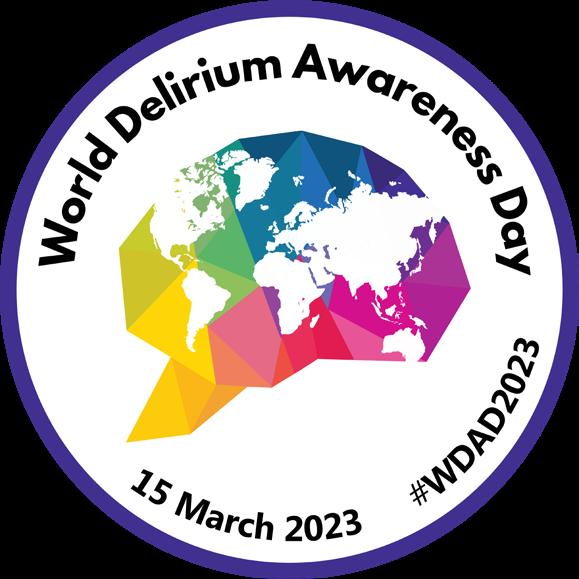
This year’s World Delirium Awareness Day theme is ‘Delirium is Everybody’s Business’. The day is hosted by the international Federation of Delirium Societies, iDelirium, to bring attention to the importance of early recognition and intervention of delirium, and to raise awareness of the latest research, guidelines, and best practices in the field.
Activities and events are organised worldwide, including at Burwood Hospital, which will mark World Delirium Awareness Day as part of international Brain Awareness Week. The week is a chance to raise awareness of not only delirium but also dementia, and other neurological conditions.
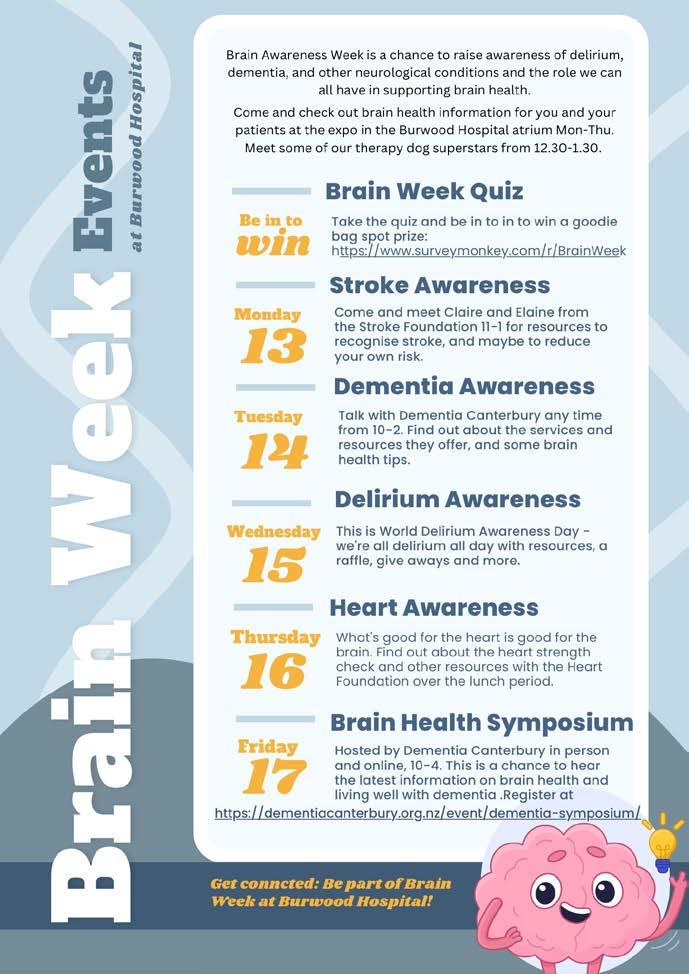
See the poster below for more details of what’s on.

Delirium is a temporary state of confusion (or worsened confusion), caused by the brain malfunctioning. The symptoms develop suddenly, usually over a few hours or days. It is a serious and common medical condition. Delirium makes paying attention and focusing thoughts difficult.
People with delirium may be upset and restless, or quiet and sleepy, or a mixture of both. They may see and hear imaginary things. They may fluctuate between being confused and seeming okay over the day. As people get older, especially if they are unwell or living with a dementia, they have greater risk of developing delirium.
It is important that everyone involved in supporting patients during their stay in our care are able to help prevent, recognise, and manage delirium, says Lead Researcher Psychiatry of Old Age Susan Gee.
“This includes nurses, doctors, Allied Health staff, hospital aides, Kōwhai Companions and all our staff team, as well as family members and caregivers. When everyone is aware of their role and working together to prevent and manage delirium, we can improve the continuity of care and help to ensure that every patient receives the best possible care.”
Brain Awareness Week is also a great time to check out the PRISM Dementia and Delirium Site available for all staff. This has information and resources for care that is dementia friendly and delirium aware https://prism.cdhb.health.nz/Site/DementiaDelirium
This is the fifth item in the series providing tips on creating accessible documents and information. For previous tips refer to Tips and tools.
EasyRead information is for people who:
› have a learning disability
› have low literacy levels
› use English as a second language
› are elderly
› are Deaf

EasyRead information is:
› Information that is clear and easy to understand
› Developed to support people with learning (intellectual) disabilities better understand written information
› Different from plain English and plain language but uses the same principles and builds on them
› Written information supported by pictures
› Written using everyday words and has no jargon or acronyms.
1. Co-production - This is a vital part of the process. Involving people in designing information will always make it better
2. Writing Well - The often neglected but most important part of EasyRead. Our aim should be to write shorter, more concise text. But we should also look to make our writing engaging and interesting. This takes imagination and plenty of practice
3. Images - Pictures add meaning to the words in EasyRead but only if you use them well. You should put as much thought into choosing your images as you do into writing the words. Some pictures can be learned like symbols. Others help the reader get a sense of an overall message or tell visual stories
4. Design and Layout - This is the vessel in which we send the message. Your pages should be clear with space around the elements so they are easy to focus on. Headings should jump from the page in bold fonts while the main text should be comfortable to read and bigger than you might usually use.
Adapted from “Four Pillars of Easy Read” by Karl Seymour.
Tips on creating EasyRead documents will follow in the next two pānui. This will include key tips relating to producing, formatting and collating information, as well as use of images.
To learn more about creating accessible documents, look out for the items in future pānui. For queries, contact Paul Barclay – Senior Advisor Disability Communications Engagement at paul. barclay@cdhb.health.nz.
Glaucoma New Zealand is encouraging all Kiwis aged over 40 to get regular eye health checks to catch glaucoma, known as the ‘sneak thief of sight’, and prevent this insidious eye disease from stealing vision.
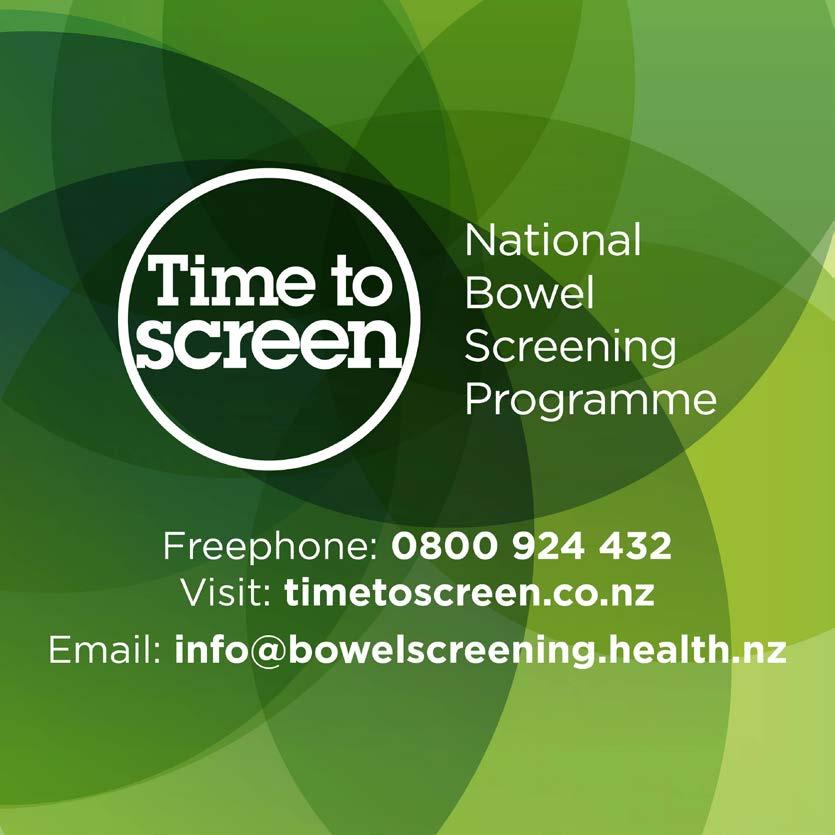

Glaucoma is a group of eye diseases that damage the optic nerve and are New Zealand’s leading cause of irreversible blindness. March is New Zealand’s Glaucoma Awareness Month which coincides with World Glaucoma Week (12 to 18 March) – a global initiative to raise awareness and encourage testing for glaucoma.
Glaucoma appears in many different forms, and in its early stages can show no symptoms. Over 50,000 Kiwis have glaucoma and are not aware of it, says Glaucoma New Zealand Chairwoman Helen Danesh-Meyer.
“From age 40 onwards people are at a higher risk of developing glaucoma. The best way to catch glaucoma early and protect your vision for future years, is by having regular eye exams at the optometrist, including an optic nerve test, which is simple and painless.”
Any eyesight loss from glaucoma can’t be reversed with treatment, but with early identification, disease progression can be slowed, she says.
Visit glaucoma.org.nz/glaucoma-awarenessmonth to learn more about Glaucoma Awareness Month and to donate to join Glaucoma New Zealand’s fight for sight.
International Wheelchair Day was marked last week, acknowledging the positive impact a wheelchair has on the lives of people who use them, making the world a far more accessible place.
The day is a great opportunity to stop and think more than just about the wheelchair itself, but those tangata (people) who require the use of a wheelchair, whether that’s temporarily or permanently, says Mana Taurite | Equity, Diversity and Inclusion Workforce Development Partner Akira Le Fevre.
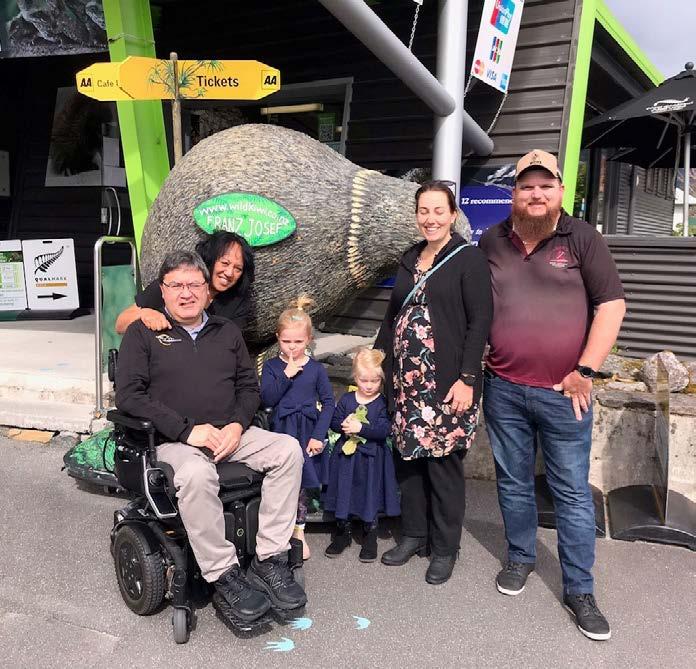

Michael Nolan, who is part of the West Coast Disability Steering Group, says his wheelchair makes a huge difference in his life.
“My Becker Muscular Dystrophy (one of nine types of the disease) is a very slow progressive disability. For much of my early life I was relatively mobile, but as I became older, getting around became more and more difficult even with walking aids.
“By chance I borrowed a wheelchair during a family reunion and quite suddenly I felt far more independent again. I still need help from caregivers and family however my (now) Power (electric) Wheelchair gets me from A to B with a lot less stress and I have a lot more confidence.”
Accessibility is definitely at the top of the list of barriers faced by wheelchair users, he says.
“Footpaths can be especially problematic if there are wide channels across driveways or entrances between the kerbing and the road with no low runoff. Another is disabled car parking, there needs to be more.
“My mobility van has a side hoist so wider parks are best and that means enough space for me to roll off the end of the hoist and not just be on it. Easy access to mobility taxis is a must, unfortunately Wellington has given me several bad experiences and I have heard some horror stories of people having to wheel themselves for several kilometres,” Michael says.
Some easy wheelchair etiquette tips when supporting a wheelchair user include:
› Talk to the person in the wheelchair directly and not their carer.
› Be mindful about access for people in wheelchairs. If you are planning to meet with someone in a wheelchair consider the surroundings, including the furniture, such as tables, – make sure they are spaced out, not close together.
› Choose a space with plenty of manoeuvre room for a wheelchair, in a spot where someone can still leave easily after the meeting.
For more information visit: www. internationalwheelchairday.wordpress.com/

Something for You is the Te Whatu Ora - Waitaha Canterbury employee benefits programme. The deals offered are from the New Zealand business community to say thank you for all that you do. Please see below offers for you.

Midnight Shanghai - 96 Oxford Terrace, Riverside Market
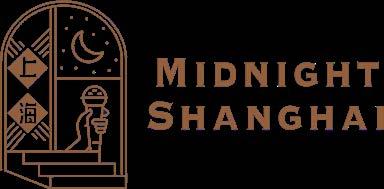
Get 10 percent off your food order for both family and groups. Show your staff ID to redeem. Discount applies to both dining in and takeaways. View terms and conditions here
Ōpuke Thermal Pools and Spa - 47 Mount Hutt Station Road, Methven
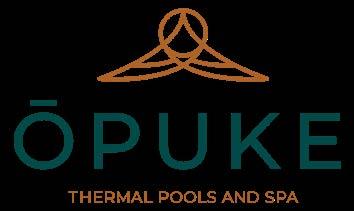
Get 10 percent off on bookings for the Tranquility pools or Discovery pools. Use the promo code CDHB10 at the online checkout. All bookings can be made online here. See details and discount code included on the brochure
Table of Munchies - 189 Papanui Road, Merivale
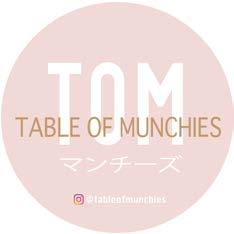
Receive 10 percent off your food order for both family and groups. Show your staff ID to redeem. Discount applies to both dining in and takeaways. View terms and conditions here
Willowbank Wildlife Reserve -60 Hussey Road, Northwood

Get 10 percent off day passes for staff. Show your staff ID to redeem.
Sakinah Community Trust, founded by seven women who lost loved ones in the 15 March terror attack have set up Unity Week Its goal is to bring Christchurch communities together in the way we were in the weeks after the attack.
It will run from 15 – 21 March and there are several events. The first event is on Wednesday 8 March, where Dai Henwood, one of New Zealand’s funniest and best-loved personalities, will be speaking loudly in support of Unity Week. He will be joined by Hamimah Ahmat, a founding member of Sakinah Community Trust who will also share her story.
The event is at Christ’s College. It is free (although koha is welcome and will go to the Trust). To learn more and to book your free tickets, visit the website
1. a. True (There are an estimated to be 200 –400 billion stars in our galaxy and around one trillion trees on earth)
2. a. True. (According to 2021 research, while heat-related deaths are increasing across the globe, for every death currently linked to heat, nine are tied to cold weather).
3. b. False. Despite the popular theory that this is true, there is no evidence that cockroaches would survive a nuclear explosion and subsequent radiation exposure any more than any other insect.
4. b. False. Humans eat around 200 species of plant. Scientists estimate that there are about 400,000 different species of plants on earth and up to 300,000 of those are edible. This means we are eating well under one percent of the edible plant life in the world.
5. a. True. The skin of a polar bear is actually black.
6. b. False. It’s a trick question! Yes, a human weighs more than an ant, but the combined weight of all the ants on earth (around 100 trillion) is greater than the combined weight of all the humans (about 8 billion).
7. b. False. The animal that kills the most people every year is the mosquito. The diseases, parasites, bacteria, viruses and pathogens transmitted by mosquitos kill between 725,000 and 1,000,000 people annually.
8. a. True. The remains of a giant penguin were found in Otago in 2017. The fossilised remains were believed to be 37 million years old.
9. a. True. This is for a number of reasons and actually true of all rodents. They don’t experience heartburn either.
10. b. False. If the earth’s rotation slowed, we would actually weigh more because as the planet rotates slower, it exerts less centrifugal force on us. The resultant force of the earth's gravity would be more as gravity would remain constant but centrifugal force would decrease.
The latest news from the Health Quality & Safety Commission is out now.
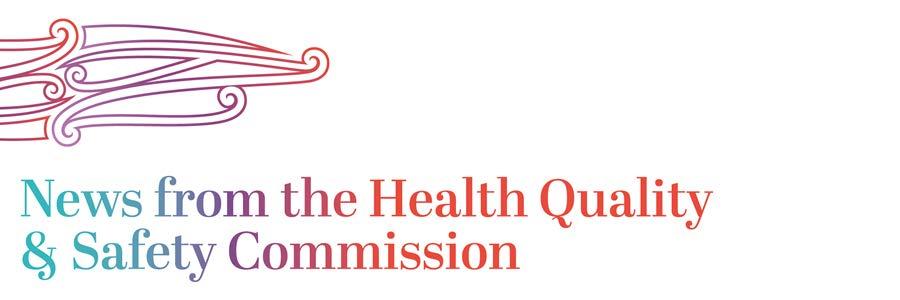
Read the latest consumer health forum Aotearoa update; a new free e-learning module on Human Factors | Ngā Āhua Tangata in health care and much more here


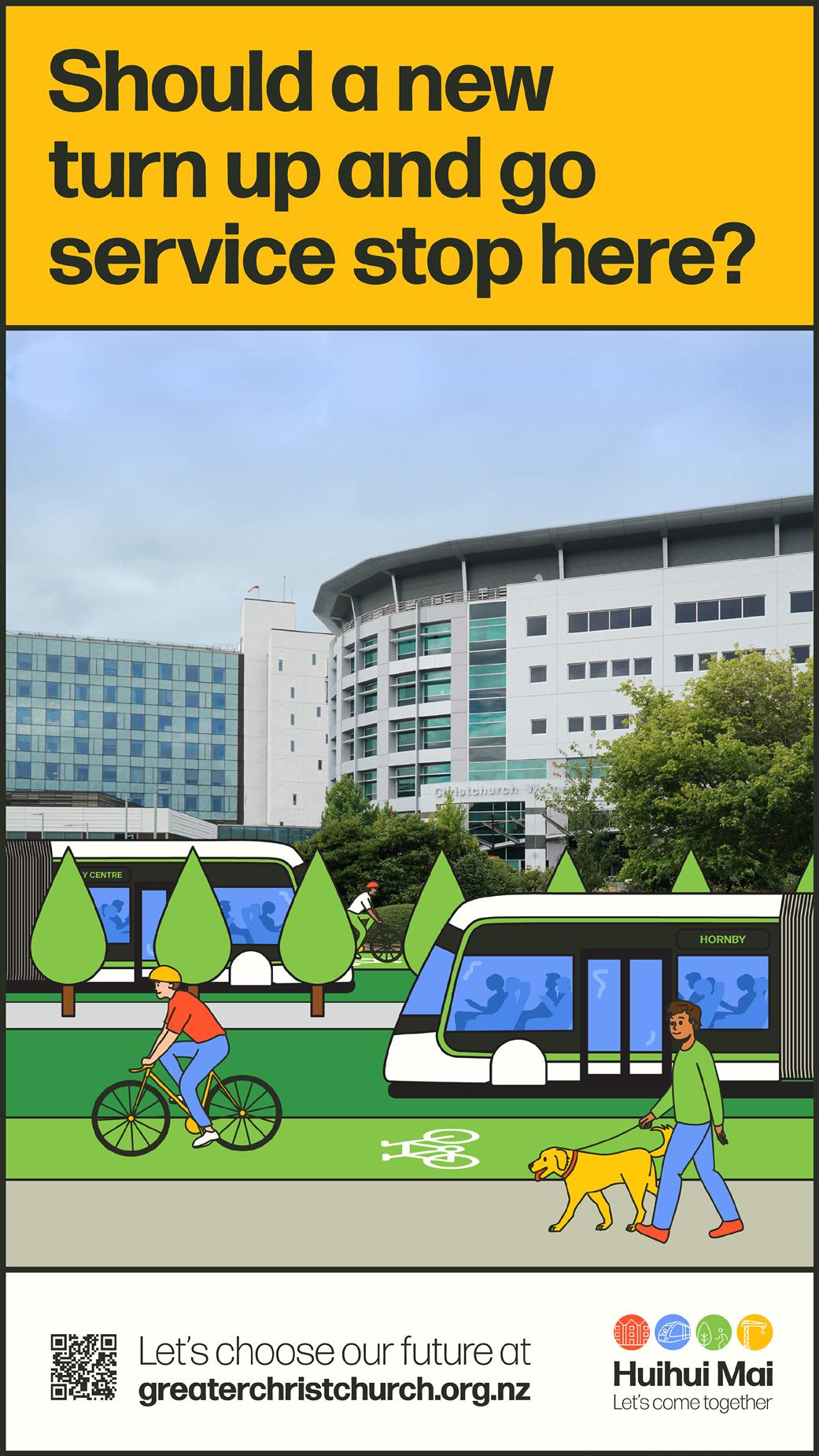
Monday
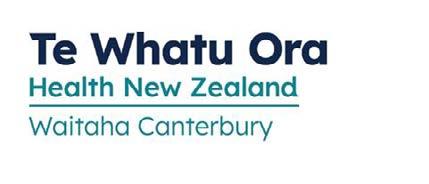


Think. Connect. Transform.
APPLICATIONS NOW OPEN
Health systems in New Zealand are shaped, and will continue to be shaped, by health professionals who look beyond their functional roles to make it better.
We all have the capacity to lead, but we are often not exposed to exploring opportunities relating to leadership. This course is designed to encourage you to extend your boundaries and to explore your leadership potential.
Join us on this five-day programme, built on the award-winning Xcerlr8 leadership programme. You will learn about what makes the Canterbury Health System work, its key drivers and differentiators. Share a wealth of experiences from industry leaders:

Health leaders sharing their personal journey, perspectives and hopes.
Technical experts sharing their expertise on systems thinking and organisational performance.
Futurists sharing the trends that will shape our communities and work environments.
Business leaders sharing their insights and expectations of our health systems.
Our expectation is that you will come away better informed about the health industry you are training for. Our hope is that you will come away with perspectives, connections and a belief that you can and should engage in new ideas and ways of working to shape our health system. The programme is free, and open to health students in their final years of study.
2022 Graduate
Programme Sessions:
Wednesday 26 to Sunday 30 April, 8.30am to 4.30pm OR
Monday 15 to Friday 19 May, 8.30am to 4.30pm
Course Location: Manawa in the Health Precinct
For more information, or to apply visit:
www.healthprecinct.org.nz/ future-leaders-programme

Each programme is limited to 20 students. Applications close: Friday 17 March, 5pm
Be the change you want to see in the world.
“This has been one of the most fundamental teaching weeks of my whole degree. I now have practical tools to make a meaningful difference”

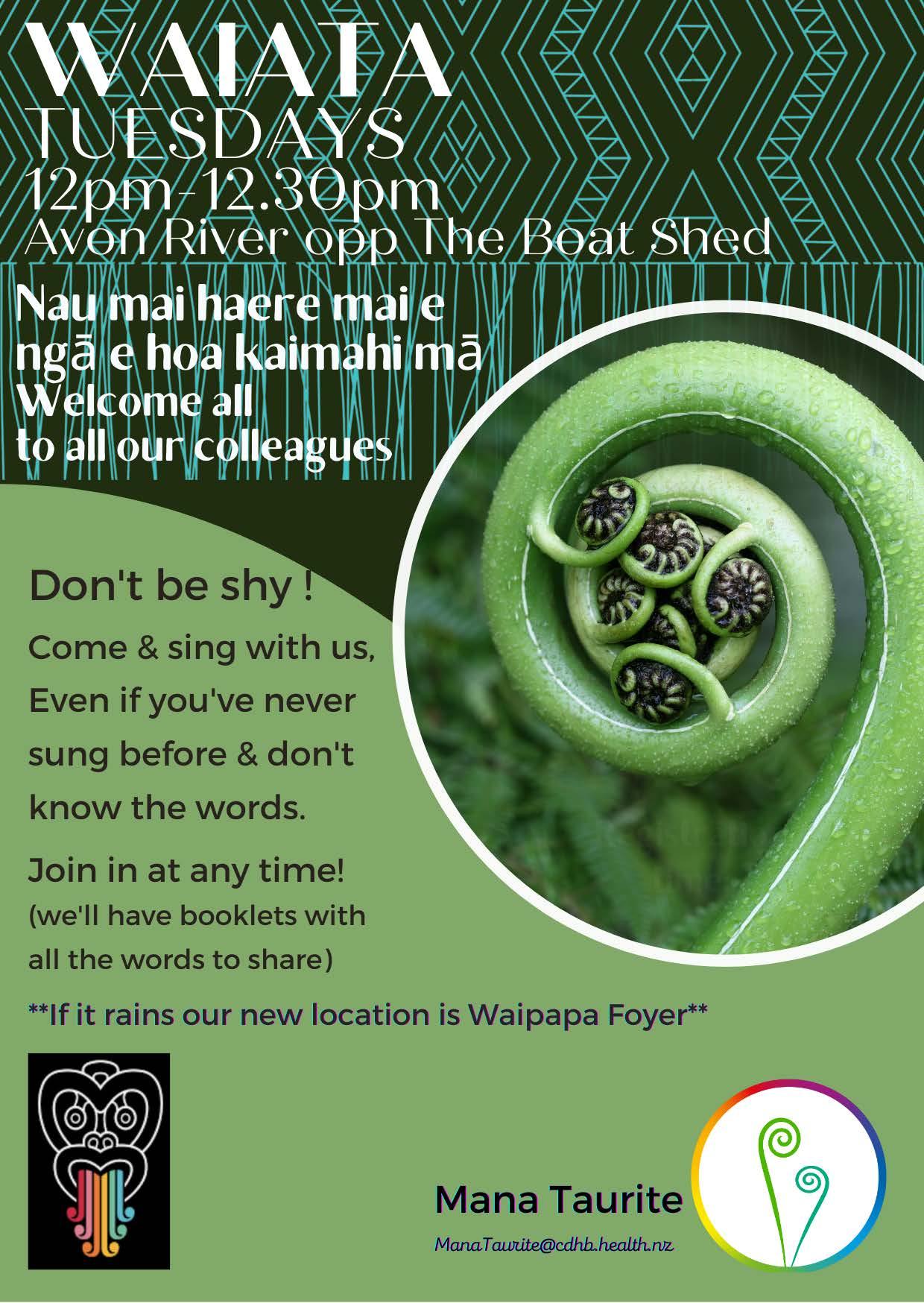
Date: Friday 26th May
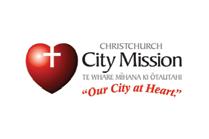
Time: 9:00am - 12:00pm
Location:

McFadden Centre, St Albans
Morning tea & lunch provided
Information:
This informative and educational symposium is for those working with over 65s. Our aim is to broaden your awareness of addiction in the older population, providing a forum to share learnings and experiences.

Spe akers:
• Mathew Croucher (Psychosocial focus)

• Lee Henley (Research focus)

• Pharmacist (Medication risks)
• Raewyn Birket t (Communit y Detox focus)
Limited Capacit y!
Register at : events.humanitix.com/wasted-wisdom-ageing-and-addiction-symposium


